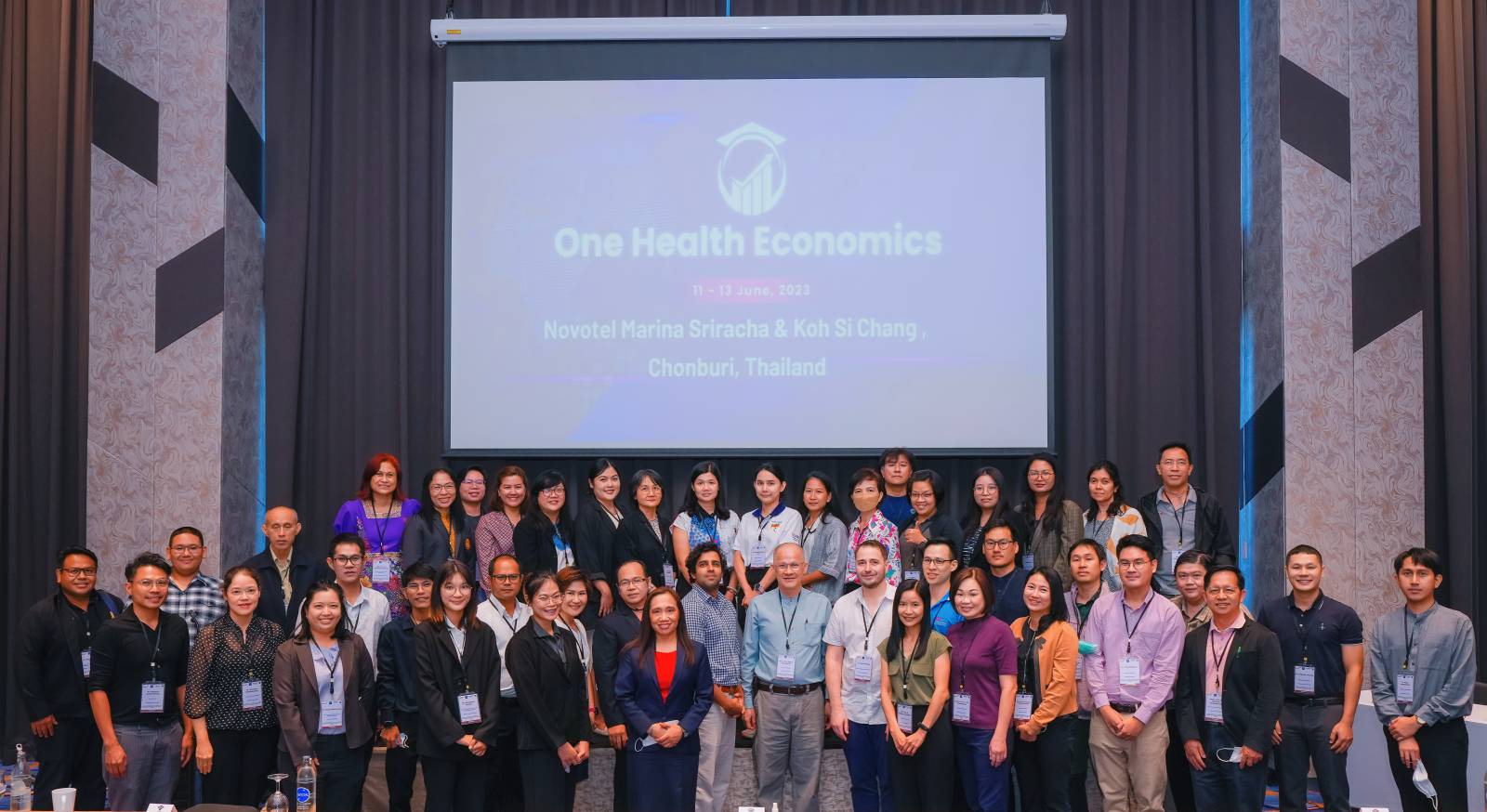| 524 Views 11 June 2023 |
MUPY’s faculty members in the Graduate Program in Social, Economic, and Administrative Pharmacy (SEAP) including 1) Assoc. Prof. Dr. Arthorn Riewpaiboon, 2) Assoc. Prof. Dr. Usa Chaikledkaew, 3) Assoc. Prof. Dr. Montarat Thavorncharoensap, 4) Asst. Prof. Dr. Sitaporn Youngkong, and 5) Dr. Saowalak Turongkaravee participated as the invited instructors and facilitators in the short course training program entitled ‘One Health Economics’ arranged during June 11-13, 2023, at the Novotel Hotels & Resorts Marina Sriracha in Chonburi Province, Thailand. Having been developed by those faculty members, the One Health Economics training program had been assigned by the Project called SPARK (Strengthening Preparedness in the Asia-Pacific Region through Knowledge).
The short course training program was hosted by Thailand One Health University Network (THOHUN) and was funded by the SPARK Project whose headquarter is located in the Peter Doherty Institute for Infection and Immunity, University of Melbourne (UoM), Australia. It was run by the following institutions.
- Nossal Institute for Global Health
- Walter and Eliza Hall Institute (WEHI)
- Australian National University (ANU)
- CSIRO (Commonwealth Scientific and Industrial Research Organisations)
- Mahidol University, Thailand
- Pasteur Institute, Ho Chi Minh City, Vietnam
- Oxford University Clinical Research Unit (OUCRU), Indonesia
In Thailand, the concept of "One Health" has been being conducted for approximately 10 years. This was the first time of the training in Thailand and the region in order to develop an economic evaluation of One Health Interventions. Regarding the training, MUPY’s faculty members had been invited to be the speakers in various academic lectures of this training; for instance, Needs and Applying One Health Economics (OHE) to Local Problems, Overview of the OHE Evaluation, Cost Analysis in OHE, One Health Outcomes in Human and Animal, Economic evaluation for One Health, and other potential approaches for OHE. Its audiences included researchers and scholars from multi-disciplinary expertises and several universities and government agencies across the country. The training program aimed to provide its participants with the followings: 1) the knowledge of economic principles associated with One Health (OH) issues or researches and the principle of One Health Economics (OHE) tools or models, 2) the analytical skill of the local and national OH problems/issues, benefits and challenges of OHE, and 3) application skill of the most relevant OHE in studies or research to address the OH issues.
Furthermore, this training program supported the Faculty’s Missions in terms of serving as the portal for professional services that encompasses drugs, herbal medicine, cosmetics, and dietary supplement to support the sustainable development of the nation, resulting in increasing international visibility of Mahidol University’s Faculty of Pharmacy. It also responded to SDG’s Goal 4: Reduce inequality within and among countries. Goal 10: reduce inequality within and among countries, and Goal 17: Partnership for the Goals to strengthen the means of implementation and revitalize the global partnership for sustainable development.

